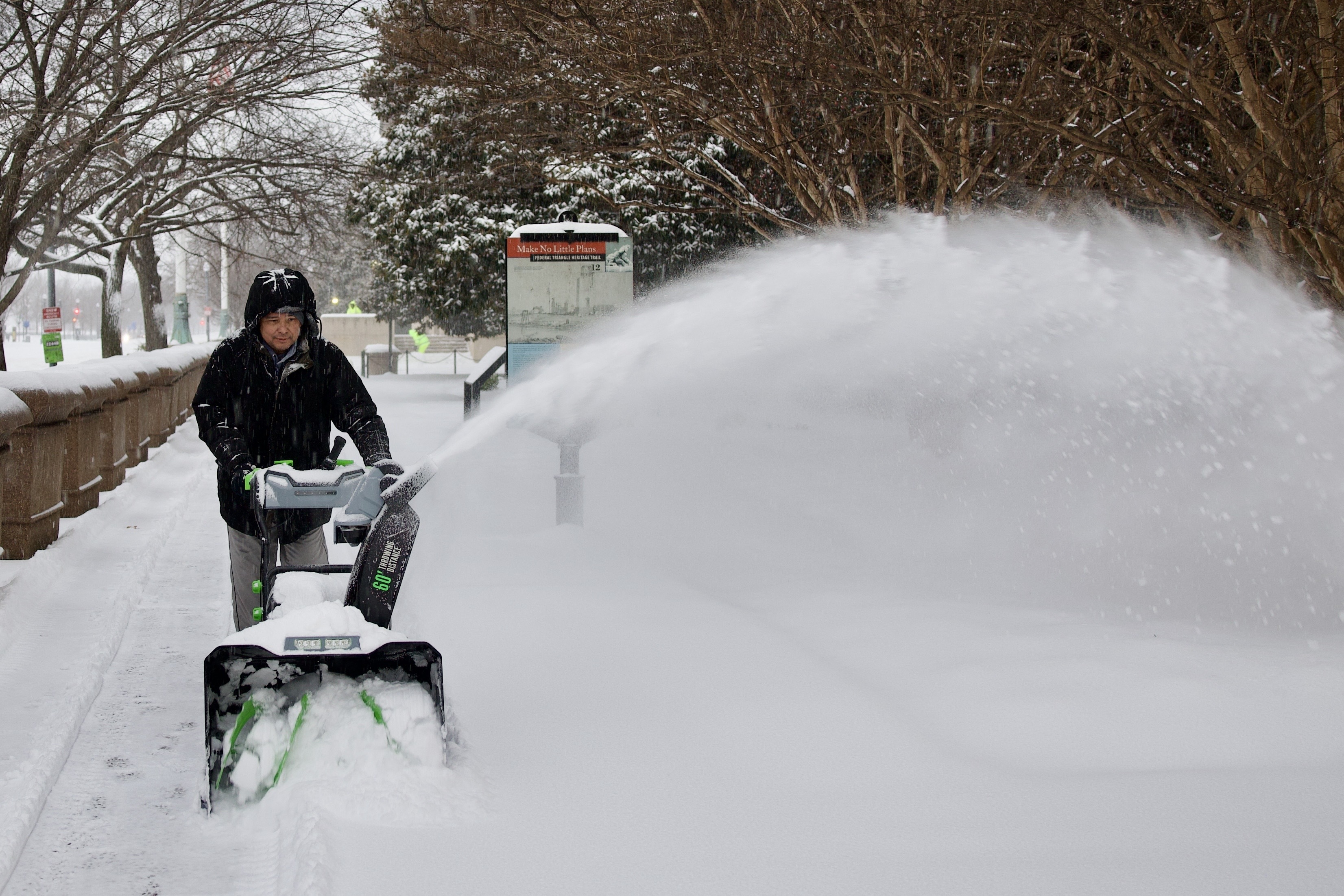Experts warn not to dry bedding outside this summer — here's why
Even on a clear day, hanging your sheets out to dry can worsen your allergies — here’s why
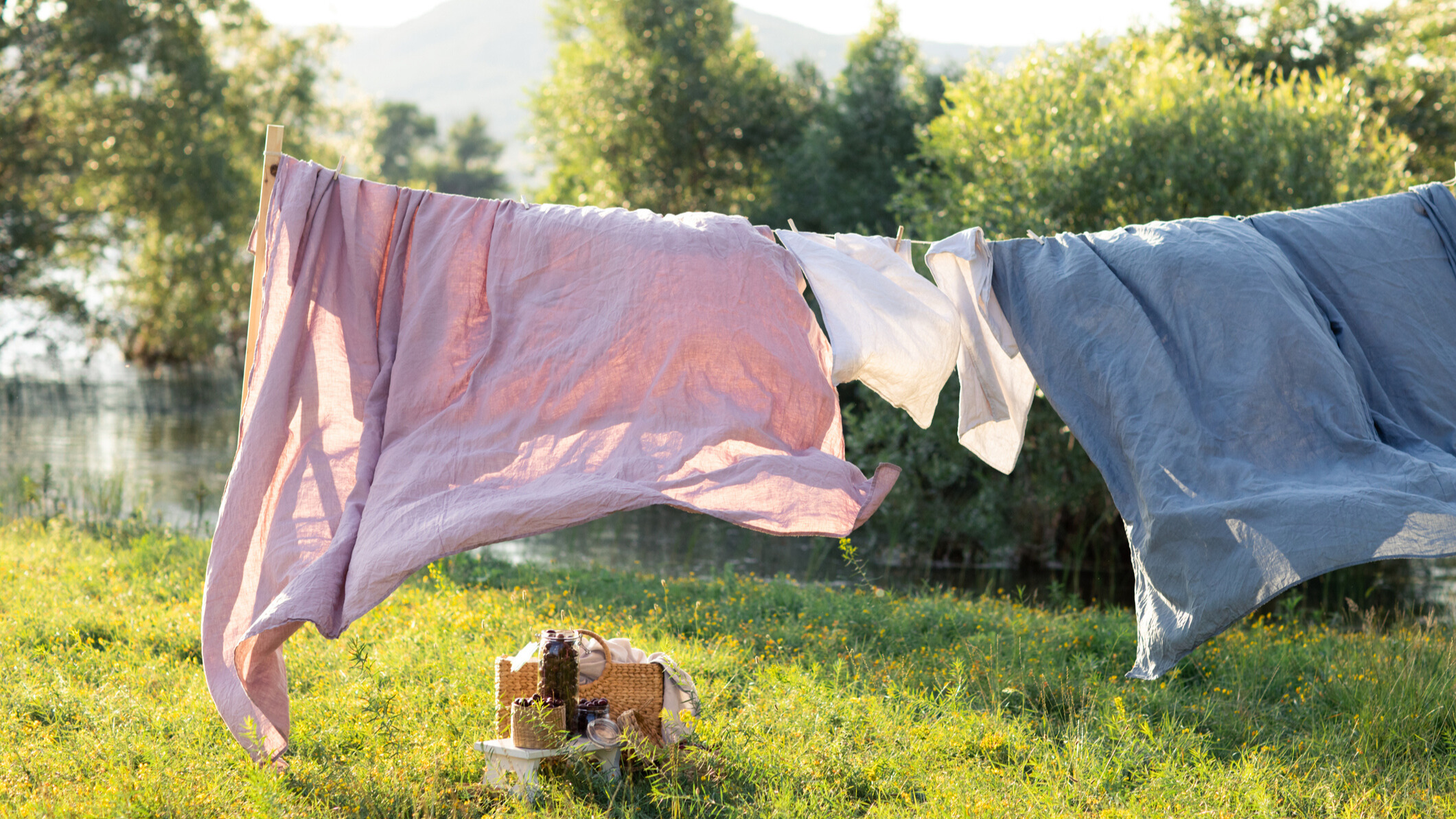
Drying your sheets outside on a bright sunny day seems like the natural thing to do. However, this cause problems for some sleepers, particularly those prone to allergies.
According to the US Centre for Disease Control and Prevention, around 25.7% of adults suffered from seasonal allergies in 2021.
While we recommend drying your bed sheets and pillow covers in the sun to get rid of dust mites and bacteria, this can also sometimes trigger allergy symptoms.
We reached out to medical and cleaning experts to find out why this happens and what other effective alternatives are. Here's what they had to say…
Why you shouldn’t dry your bed sheets outside in summer
"It’s well known that grass, tree and weed pollen can cling on to the bedsheets, particularly if these are made from cotton," says Dr. Elena Salagean, allergy consultant at Holistic Allergy.
These can cause what experts call 'seasonal allergic rhinitis' or, simply put, pollen allergy or hay fever. But why does pollen aggravate or cause allergic reactions?
Studies show that this is because our bodies mistakes pollen for a harmful substance and release a defensive response that can irritate our airways. This can result in various allergic symptoms such as a runny nose, sneezing or red, watery eyes.
Get instant access to breaking news, the hottest reviews, great deals and helpful tips.
Even if we take precautions such as loading up on antihistamines or not going outside when the pollen count (defined as the amount of pollen in the air measured in grains per cubic meter) is high, we could still get exposed in other ways, like by drying bedsheets outside.
"On a high pollen count day, bedding left outside can soak up high number of pollen particles, which you then bring indoors and breathe in at night. This can make your hay fever worse," explains Dr. Salagean.
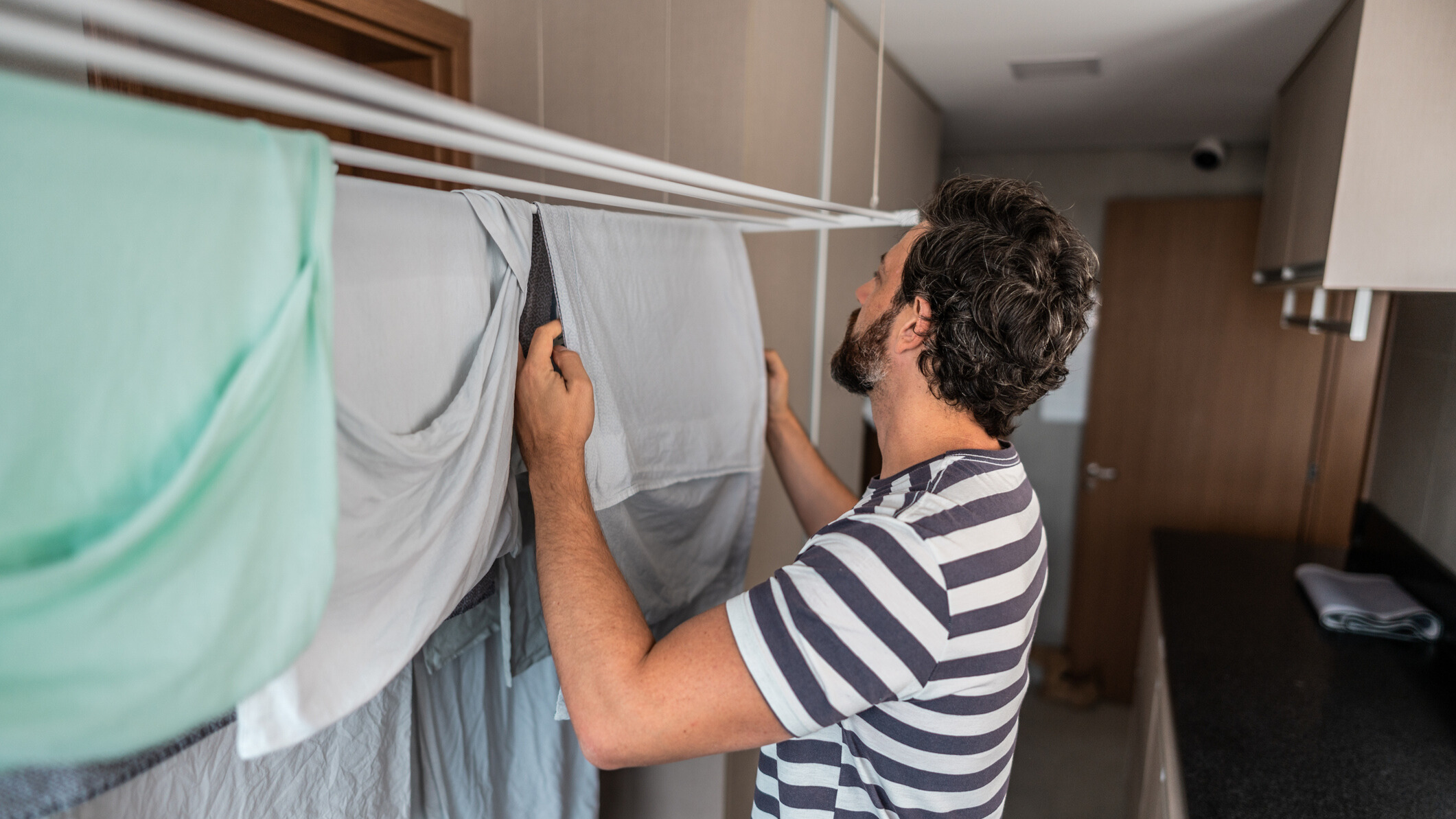
How to dry your bedsheets in the summer
Tumble drying is the leading alternative recommended by experts to avoid pollen contamination.
"You can use a tumble dryer with a good lint filter or dry them on an indoor clothes airer, ideally in a well ventilated room," says Dr. Hussain Ahmad, health practitioner at UK-based Click2Pharmacy.
However, if you're drying sheets indoors, it's a good idea to invest in a dehumidifier as this can keep the moisture at bay, which can otherwise lead to mold or mildew growth.
If you still prefer to dry outside, especially if it's a particularly bright sunny day, Dr. Salagean says that you can leave your sheets out for a few hours early in the afternoon.
"This might just reduce the amount of pollen you bring back into the house. Even on a high pollen count day, the pollen levels tend to peak in early morning or late afternoon or early evening," she explains.
What we don't recommend is to simply stop washing your sheets — the sunny season can be rough on your bed but we have expert advice on how to keep your mattress clean in summer.
7 top bedroom tips for an allergy-free summer
1. Wash your bedding weekly
The first step to get rid of allergens from your bedroom is to wash your bedding regularly.
"Washing your bedding once a week at 60°C kills off dust mites and removes pollen or pet dander that might have settled on the fabric," says Dr. Ahmad.
For a thorough cleanse, make sure to avoid overloading your machine, which is one of the most common washing mistakes to make.
2. A quick shower before bed goes a long way
Apart from its sleep benefits, a warm shower before bed can also help prevent your allergies from getting triggered.
"A quick shower before bed helps by rinsing off any allergens from your skin or hair, so you’re not transferring them to your pillow," says Dr. Ahmad.
This is important since your pillow and bedding are in direct contact with your skin and nose, which means an easy way for pollen to get into your system.
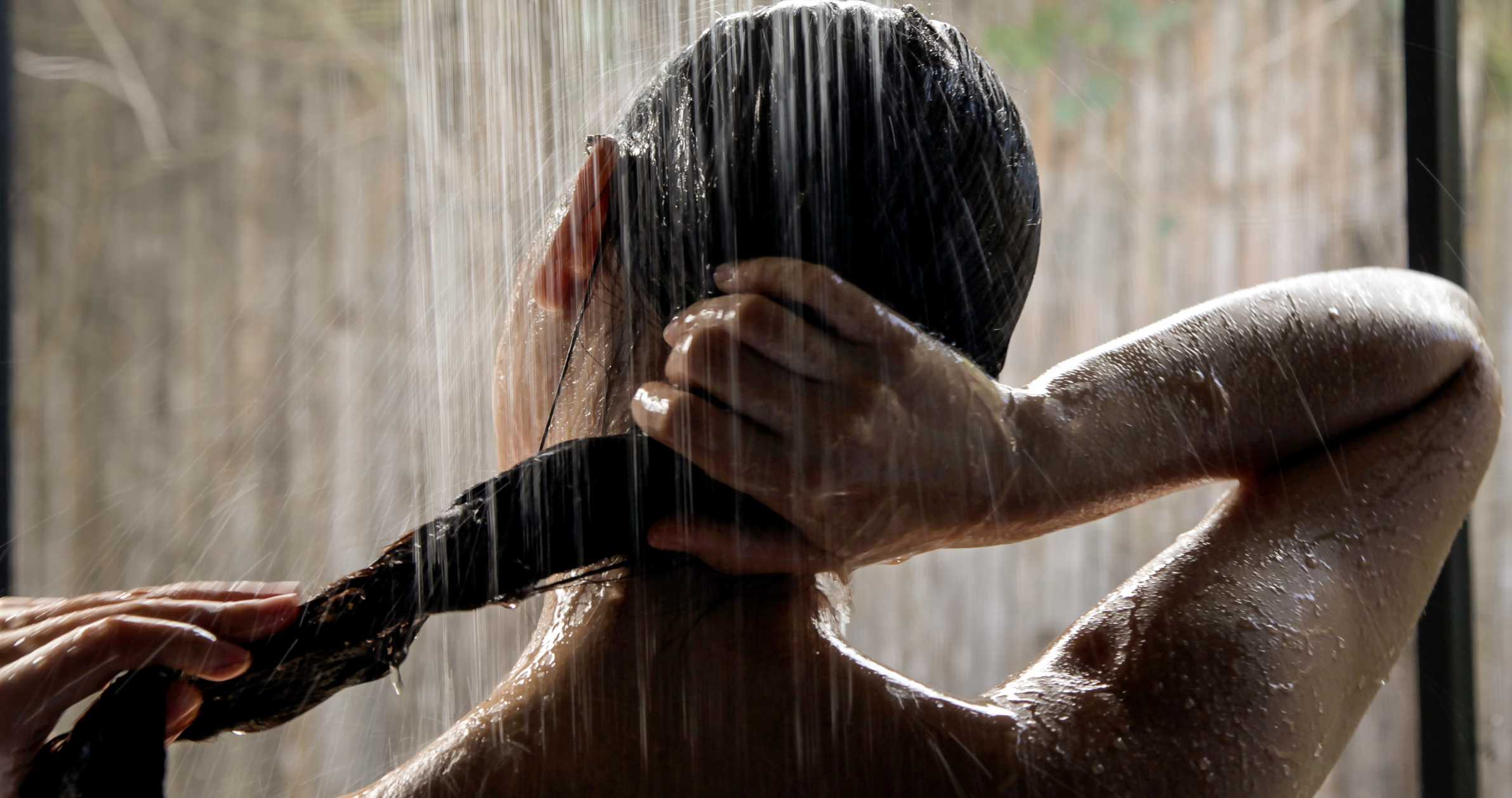
3. Keep your windows shut at night
As already mentioned, during high pollen count days, pollen levels can peak in the morning and evening.
Closing your windows early in the evening can prevent pollen from getting into your clean bedroom and contaminating the environment hours before you're ready to sleep.
This also depends on the season, as pollen levels tend to spike in spring and summer.
4. Use an air purifier
Using an air purifier is an efficient way to trap microscopic particles like pollen which can cause irritations and allergies.
According to the Environmental Protection Agency (EPA), air purifiers with HEPA filters (high-efficiency particulate air) can remove around 99.97% of dust mites, pollen and other particles up with a size of 0.3 microns.
"You could even leave it on high power for 30 minutes - one hour before going to bed so it recirculates more of the air," recommends Dr. Salagean.
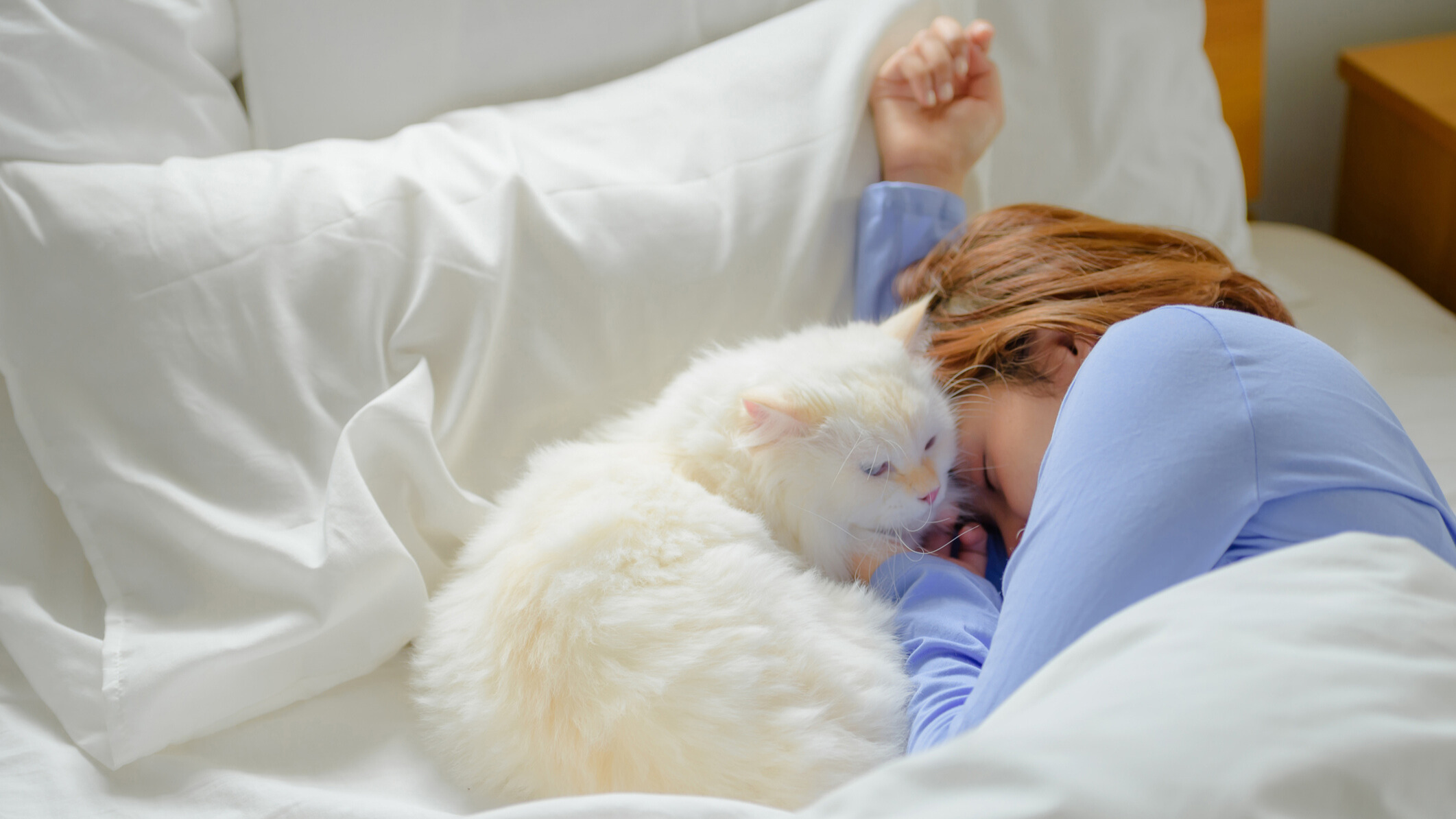
5. Try not to bed-share with your pet
Snuggling up with your furry friend might be the most comforting thing, but it can result in severe consequences for your allergies.
While you might do everything to keep pollen out of your house, your pets could be an indirect source of still getting exposed to these nasty particles.
"Keep pets out of the bedroom as they can also bring in pollen on their coats especially if they go outside," says Dr. Salagean.
6. Minimize soft furnishings
Yes, carpets and rugs might give you the perfect cottage-core aesthetic this summer but if you're prone to allergies, we would advise against it.
"The fewer soft furnishings and clutter you have, the less dust there is to settle. If you can, swap carpets for hard flooring, which doesn’t trap allergens like carpets do," says Dr. Ahmad.
Can't do without them? Clean them regularly using one of the best vacuum cleaners with a HEPA filter.
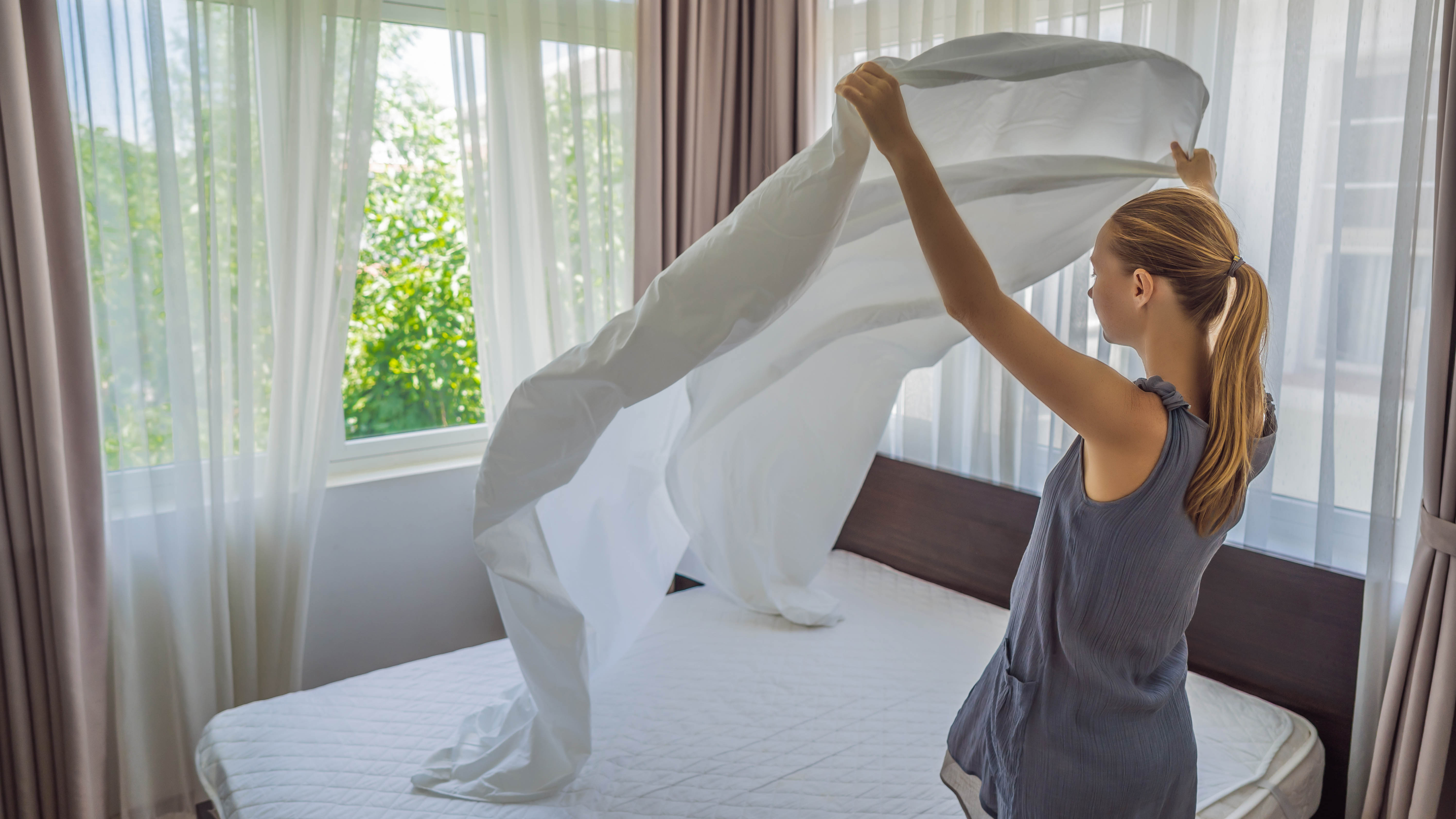
7. Use hypoallergenic bedding
Your pillows, sheets, blankets or duvets are in direct contact with your skin and so while you can maintain them to be clean and free of particles, prevention is always better than cure.
Thanks to modern manufacturing methods, we're now able to access bedding crafted from soft hypoallergenic materials like cotton, bamboo, kapok and memory foam which are resistant to dust mites, pollen and other common allergens.

Becky is a Sleep Staff Writer at Tom’s Guide covering all things sleep-related including product reviews, research studies, news and explainers. She works on specialist bedding content and is responsible for buyer’s guides like the best pillows for all sleepers and best mattress protectors focusing on popular brands such as Tempur-Pedic, Avocado, Coop Home Goods and more. Becky is a PPA accredited journalist who is keen to explore the intricacies of sleep, its effects on skincare, mental wellbeing and work performance. While not thinking of sleep, she can be seen reading in cosy bookshops or learning about global food culture.
You must confirm your public display name before commenting
Please logout and then login again, you will then be prompted to enter your display name.
 Club Benefits
Club Benefits





